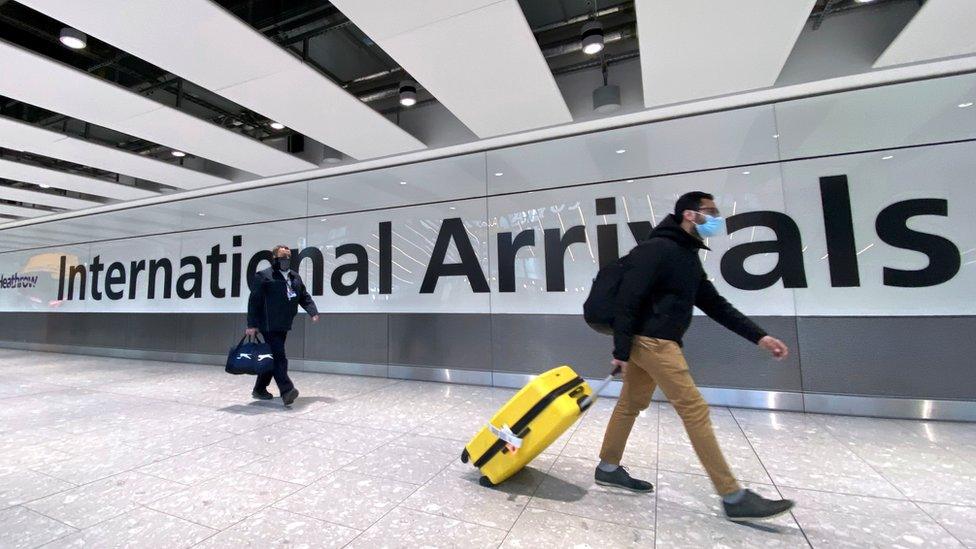A few frequent flyers 'dominate air travel'
- Published
- comments

A small minority of frequent flyers dominate air travel in almost all countries with high aviation emissions, analysis suggests.
In the UK, 70% of flights are made by a wealthy 15% of the population, with 57% not flying abroad at all.
There are calls for a frequent flyer levy - a tax that increases the more you fly each year.
Greenpeace supports the tax and also wants air miles banned because they say it encourages frequent flying.
The UK government said it is reviewing aviation taxes, but insisted that a frequent flier levy would have many problems.
The campaigners believe frequent flyer levies would be broadly popular because they disproportionately affect the rich, who fly the most.
The UK Citizens' Assembly last year supported the principle that people who fly more should be taxed more.
Research for the climate campaign group Possible says that, in the US, just 12% of people take two-thirds of flights. The government's advisory Climate Change Committee wants a levy on frequent fliers.
The Possible research suggests the frequent flyer trend is mirrored in other wealthy countries.
Canada: 22% of the population takes 73% of flights
The Netherlands: 8% of people takes 42% of flights.
China: 5% of households takes 40% of flights
India: 1% of households takes 45% of flights.
Indonesia: 3% of households takes 56% of flights.
Alethea Warrington, from Possible, said: "This report shows the same pattern of inequality around the world - a small minority of frequent flyers take an unfair share of the flights.
"While the poorest communities are already suffering the impacts of a warming climate, the benefits of high-carbon lifestyles are enjoyed only by the few. A lot of people travel. But only the privileged few fly often."
John Sauven, executive director of Greenpeace, told BBC News: "Taxing frequent fliers is a good idea - but we also have to do something about air miles, which reward frequent fliers for flying more frequently. This is obscene during a climate crisis - and it should be stopped."
A UK Treasury spokesman told BBC News: "We're leading the global fight on climate change and will use our hosting of COP26 (the Glasgow climate summit) later this year to galvanise global support for aviation decarbonisation.
"Frequent flyers already pay more under the current APD (Air Passenger Duty) system, but we are currently consulting on aviation tax reform and welcome views."
He said there were many drawbacks to a frequent flyer levy. These include that it would be complex to administer, could pose data processing and privacy concerns, could be difficult to impose where passengers hold multiple passports and could be a challenge for those who have an essential need to fly frequently.
The government's consultation on aviation tax reform closes on 14 June.
The spokesman did not comment on the proposal to make air miles programmes illegal.
Follow Roger on Twitter., external